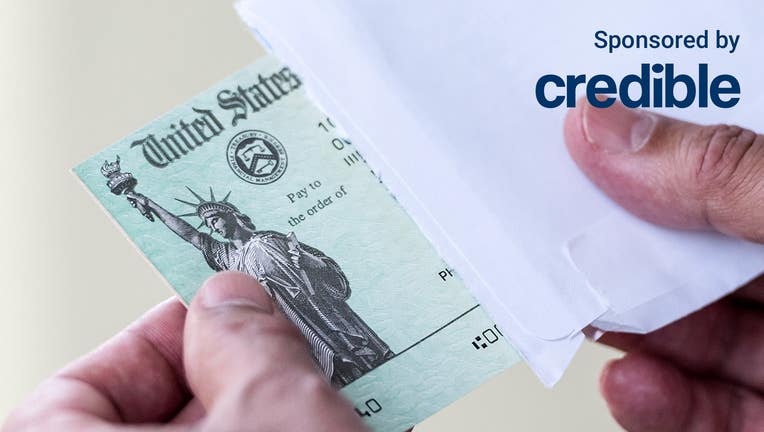Many Americans plan to use their tax refunds to build savings in 2023, survey says

Inflation and rising costs are the biggest financial challenges for most Americans, a recent TaxAct survey said. (iStock)
Many Americans plan to save less than $5000 this year and are relying on their tax refunds to build rainy day funds, according to a recent survey.
The majority of Americans (59%) saved about the same last year, according to the TaxAct survey.
Financial experts recommend that consumers have roughly three to six months' worth of living expenses in emergency savings but inflation and rising costs have made this target a challenge.
Inflation and rising costs were listed as the top financial concern for over 50% of respondents and the biggest reason why Americans are unable to build savings. This concern has even impacted Americans in higher tax brackets – 55% of consumers with household incomes between $50,000 and $99,999 also cited inflation as their top financial worry, the survey said.
"There is a lot of economic uncertainty right now, and for the majority of customers we serve, their tax refund is their biggest paycheck of the year," Curtis Campbell, President and CEO of TaxAct, said. "U.S. citizens are saving less money, and therefore, relying on their refunds to help make ends meet."
If you are struggling to pay off debt, you could consider using a personal loan to consolidate your payments at a lower interest rate, saving you money each month. You can visit Credible to find your personalized interest rate without affecting your credit score.
Many Americans are relying on their full tax refunds
Most Americans are relying on receiving the same amount in their tax refunds this year as they did last year, the survey said. Only 30% said they expected a smaller refund and 24% were unsure how much they would receive.
The reality is that with an end to several pandemic-era tax breaks, some Americans could be in line for a smaller refund this year. The Child Tax Credit (CTC), Earned Income Tax Credit (EITC) and Child and Dependent Care Credit are among the affected credits. The tax deadline for all federal tax returns and payments filing is April 18, 2023.
Last year, the average tax refund was $3,039, according to the IRS, an increase of over $200 from the prior year primarily due to COVID-19 tax credits.
"We can expect to see lower tax refunds across the board this season being there was no stimulus relief this past year and other tax advantages, like the Child Tax Credit, reverted back to their lesser 2019 values," Campbell said. "Refunds are predicted to go down 11% from last year, and it’s important for people to be prepared to receive less or even owe money this tax season."
If you think you will receive a smaller refund this tax season but have debt you need to pay down, you could consider consolidating it with a personal loan. Credible can help you find your personalized interest rate without affecting your credit score.
Secure 2.0 Act helps Americans build savings
The Secure 2.0 Act of 2022 – a follow-up to the 2019 Secure Act – contains a number of fundamental changes to existing retirement account rules and certain related tax breaks. One highlight of Secure 2.0 will impact how Americans can build emergency savings under retirement plans.
Beginning in 2024, sponsors of individual account plans can create "emergency savings accounts" that permit non-highly compensated employees to make Roth after-tax contributions to a special savings account within the retirement plan, a Morgan Lewis report said.
Contributions to the special savings account would be limited to $2,400 and the first four withdrawals each year would be tax and penalty-free. Contributions could also be eligible for an employee match if the plan rules allow for it, according to Fidelity.
If you're interested in borrowing a personal loan to help you pay off debt at a lower interest rate, you can visit Credible to compare personal loan lenders and find the right option for you.
401(k) hardship withdrawals rise as increased cost of living challenges retirement savings: report
Have a finance-related question, but don't know who to ask? Email The Credible Money Expert at moneyexpert@credible.com and your question might be answered by Credible in our Money Expert column.

